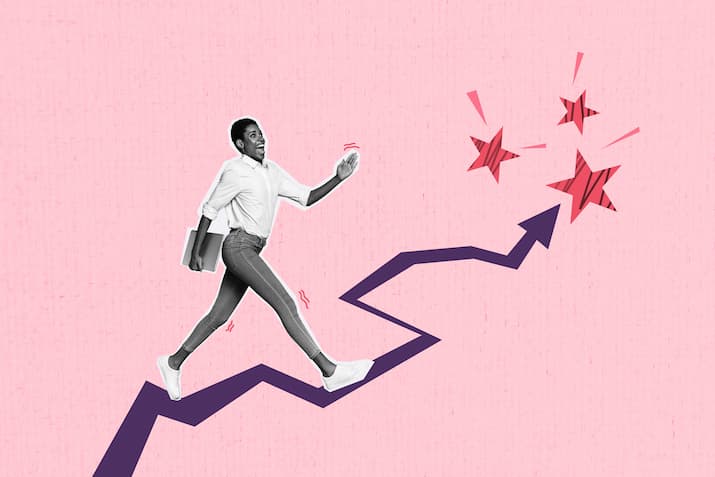Careers & industry

Want a career change from teaching but not sure how?
Spoiler—you have more transferable skills than you think. By the end of this article, you may even have a game (not lesson) plan to go on.

What are the happiest jobs in Australia?
Ready to start your search for career fulfilment? Inspiration begins here.

The simplest way to make a career change into teaching
Feeling stuck in your current role? A career change into teaching may be more accessible than you think.

8 courses to help you change careers—without breaking the bank
Ready for a career shake up but have money on your mind? These postgraduate courses are ideal for career changers because they offer Commonwealth supported places (CSPs).

Every university student strives to get good grades, but how much do they really matter when it comes to getting a job? We spoke to a recruiter to find out.

The most valuable transferable skills to learn
If you want the freedom to move between different jobs and industries, it pays to develop these transferable skills. They’re abilities that are in-demand in nearly every role, making them essential additions to your resume.

The most sought-after skills in the creative industries
Want to future-proof your creative career? Or pivot to a better paying role in the same field? We asked a recruitment expert about the skills employers in this sector are keen to see from candidates right now.

These are the most in-demand health roles right now
Wondering where to go next in your healthcare career? Take a look at these numbers.
Courses & the study experience

8 undergraduate certificates that will help you get into a bachelor degree
Don’t meet the requirements for your dream course? These undergraduate certificates could be your ticket in.

What can I do with an undergraduate certificate?
And can you actually get a job with one? We're here to answer your questions.

Your guide to university open days in 2025
Wondering how to make the most of uni open days this year—and whether you should even go, if you're planning to study online? We've gathered all the key information for you, including dates you can put straight in your calendar.

Juggling family, work and study: how online uni enables career development for mums
Between raising children, working full-time, and supporting her family, Bernis’ life was already full. But quietly persisting in the back of her mind was her desire to grow professionally and prioritise career development.

Is an undergraduate certificate the right choice for me?
Understand how an undergraduate certificate compares to other qualifications, so you can decide on your next step with confidence.

Your quick guide to subjects starting this winter
Studying a subject that fascinates you can keep your brain busy in the colder months. From literature to law to the natural world—see what’s starting soon.

Your quick guide to degrees starting this winter
Ready to get qualified sooner, rather than later? See which degrees are now taking enrolments for a midyear start.

What is an undergraduate certificate?
It's the shortest university qualification you can get—and it will open so many different possibilities for your future. Find out what an undergraduate certificate is, and why you might like to enrol in one.
Study & life hacks

What subjects have the highest pass rates?
Whether studying for the first time or choosing your next elective, these subjects could boost your confidence.

What alternative pathways can I take into university? Your guide to starting small
If you’re the first in your family to attempt uni study, or it’s been a long time since you’ve hit the books, reading degree entry requirements might just send your head into a spin. This is your guide to starting small.

Your ultimate guide to study breaks
Need a breather from your coursework? Check out these fun ways to recharge, no matter your mood.

Have you got a passion or special skill that could earn you money? We spoke to people with successful side hustles about what it takes to launch your hobby into a source of secondary income.

8 of the most common tax return mistakes students make
We asked Ashley Debenham from etax.com.au about the major flubs to avoid on your tax return this year.

What self-education expenses can you claim at tax time?
An accountant shares the ins and outs of getting your tax done—including what you can and can’t claim if you're studying for work.

How do I choose a tutoring service? And is needing one embarrassing?
Asking for help with uni isn’t a sign of weakness. It’s a predictor of success—a wise move for students of all abilities to secure stellar grades. But how should you choose a tutoring service?

How to get into uni without an ATAR
We know you have what it takes to study at university—and you don’t need an ATAR to prove it. Let’s explore the alternative pathways you can follow to get into the course of your dreams, no matter what.
